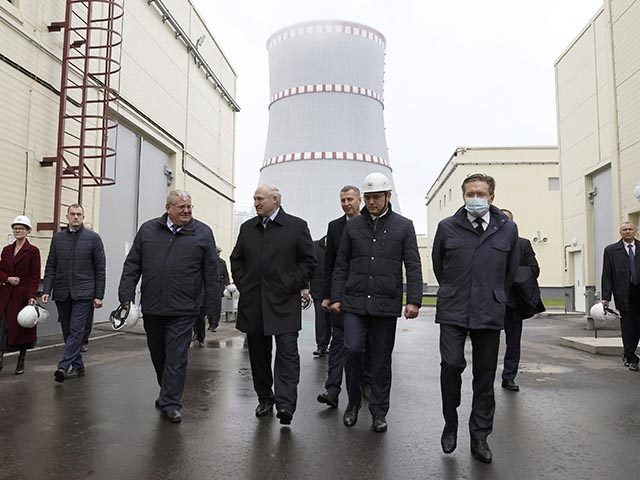A nuclear power plant in Belarus that went online Saturday shut down less than 24 hours after its inauguration, the country’s Energy Ministry announced Monday, to repair broken equipment.
Opening the Astravets power plant on Saturday, leftist dictator Alexander Lukashenko declared that his country will “become a nuclear power” by taking a “new step into the future, toward ensuring the energy security of the state.”
Belarusian officials claim the nuclear plant will become fully operational in 2022 and then produce up to 2,400 megawatts of electricity.
The Lithuanian grid operator Litgrid, located some 20 kilometers from the plant, said it had detected a production stoppage at around 10 a.m. on Sunday morning, less than 24 hours after the plant’s inauguration.
“During the tests, the need to replace individual electrical measuring equipment was identified,” the Energy Ministry explained. “Replacement of this equipment is being carried out in accordance with the technological regulations. All technological systems are operating normally.”
The power plant was built by the Russian state-owned firm Rosatom and financed via a $10 billion loan from Moscow. Energy officials in Lithuania and Latvia have deemed the plant unsafe, arguing that Rosatom failed to follow the necessary safety and environmental measures for a project as dangerous as constructing a power plant.
These concerns should be particularly relevant to Belarusians, who suffered greatly in the aftermath of the 1986 nuclear disaster in Chernobyl, with around 80 percent of its territory contaminated by the incident. The Chernobyl Nuclear Power Plant is located in Ukraine, on Belarus’s southern border, and a great percentage of its pollution drifted northwards and devastated the neighboring country due to wind movements.
Russia and Belarus share close diplomatic relations and the Kremlin represents a key source of support for Lukashenko as he fights to stay in power following three months of protests against his rigged election victory in August. Many of these demonstrations have been met with violence by security forces, which has attracted international condemnation of the Lukashenko regime.
In addition to being an environmental hazard, critics of the nuclear power plant add that that it is an attempt to increase the country’s energy dependence on Russia and shore up the Kremlin’s control over the former Soviet Union country.
“Astravets is a geopolitical project, but the ban is meant to reduce motivation for it, to keep it from becoming profitable,” Lithuanian Energy Minister Zygimantas Vaicunas said last week.
Follow Ben Kew on Parler, Facebook, or Twitter. You can email him at bkew@breitbart.com.

COMMENTS
Please let us know if you're having issues with commenting.